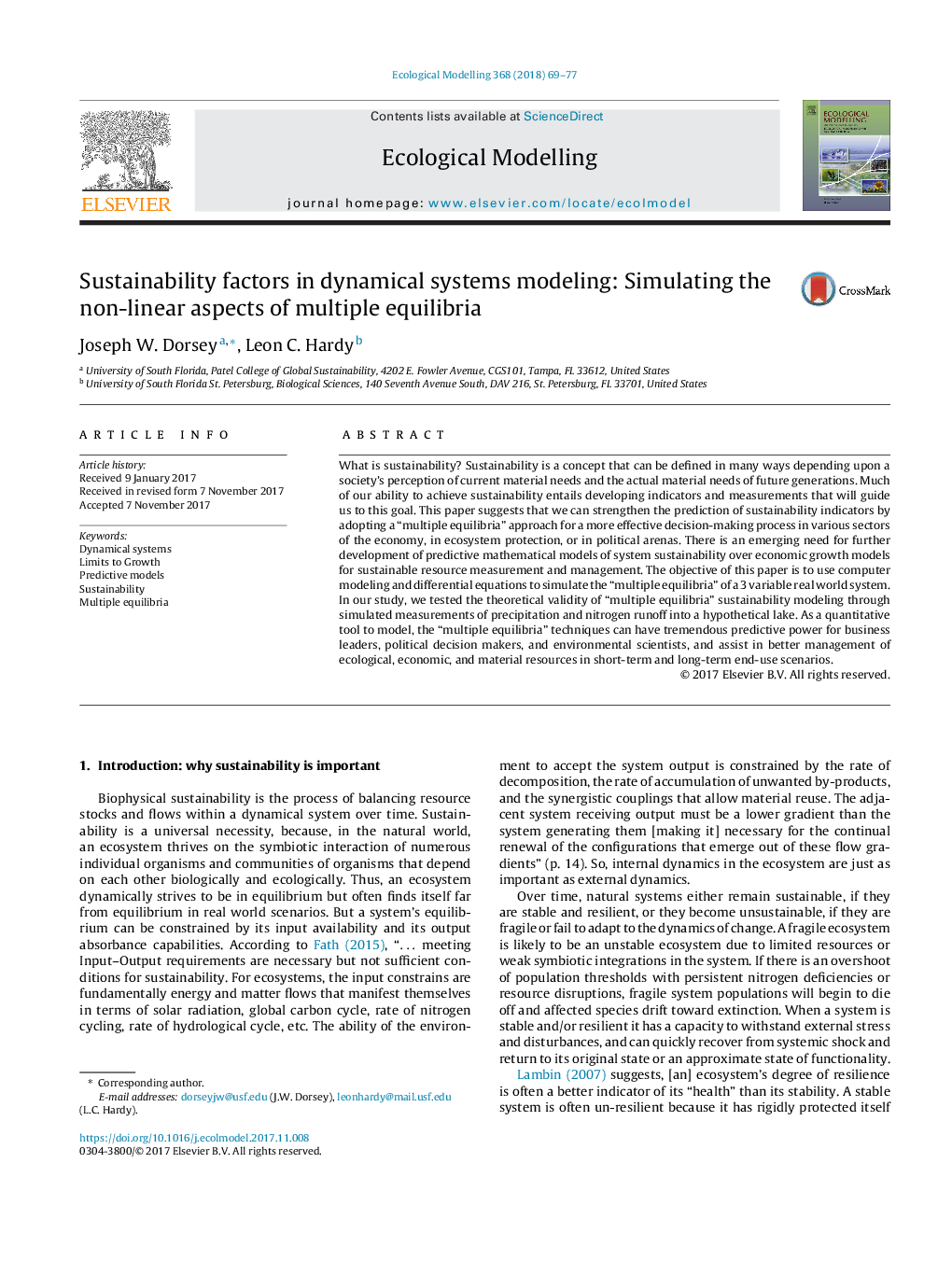| Article ID | Journal | Published Year | Pages | File Type |
|---|---|---|---|---|
| 8846131 | Ecological Modelling | 2018 | 9 Pages |
Abstract
What is sustainability? Sustainability is a concept that can be defined in many ways depending upon a society's perception of current material needs and the actual material needs of future generations. Much of our ability to achieve sustainability entails developing indicators and measurements that will guide us to this goal. This paper suggests that we can strengthen the prediction of sustainability indicators by adopting a “multiple equilibria” approach for a more effective decision-making process in various sectors of the economy, in ecosystem protection, or in political arenas. There is an emerging need for further development of predictive mathematical models of system sustainability over economic growth models for sustainable resource measurement and management. The objective of this paper is to use computer modeling and differential equations to simulate the “multiple equilibria” of a 3 variable real world system. In our study, we tested the theoretical validity of “multiple equilibria” sustainability modeling through simulated measurements of precipitation and nitrogen runoff into a hypothetical lake. As a quantitative tool to model, the “multiple equilibria” techniques can have tremendous predictive power for business leaders, political decision makers, and environmental scientists, and assist in better management of ecological, economic, and material resources in short-term and long-term end-use scenarios.
Related Topics
Life Sciences
Agricultural and Biological Sciences
Ecology, Evolution, Behavior and Systematics
Authors
Joseph W. Dorsey, Leon C. Hardy,
